#Qu Yuan
Text







Qu Yuan Plus Restaurant, Yangzhou, China,
Courtesy: LDH DESIGN
#art#design#stairwell#architecture#stairway#staircase#stairs#interiors#spiral staircase#staircases#restaurant#china#yangzhou#qu yuan#LDH design#luxury lifestyle#travels
70 notes
·
View notes
Text
Martyr!, the poet Kaveh Akbar’s propulsive debut novel, tells the tale of Cyrus Shams, the son of a lost mother (victim of a 1988 U. S. Naval snafu in the Persian Gulf that killed 290 people on a commercial airliner) and the long-suffering father who emigrated to Fort Wayne, IN with his baby boy. We meet Cyrus as a student of poetry at Keady University and a reformed addict. In this excerpt, he’s at the local open mic with his friends; we also share one of the poems from Cyrus’s bookofmartyrs.docx, helpfully supplied by Akbar, the poet behind the fictional poet.
QU YUAN
340 BCE–278 BCE
you laureate of tongue and stone,
among the rarer hues
on the spectrum from brightest bright
to darkest dark—
the villagers throwing rice into the river
to lure fish from your corpse,
stutteringly radiant still, the dragon boats racing
in the pink light—
no I won’t sign up for old age either,
anacondas
and common pearls:
of the beginning of the beginning
who spoke the tale?
you did, you did
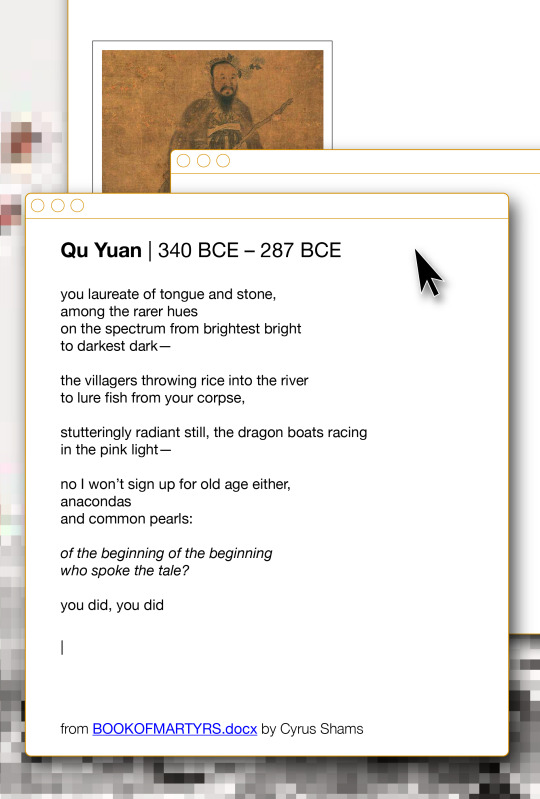
More on this book and author:
Learn more about Martyr! by Kaveh Akbar.
Browse Kaveh Akbar's poetry collections and follow Kaveh on Instagram @kavehakbar.kavehakbar.
Visit our Tumblr to peruse poems, audio recordings, and broadsides in the Knopf poem-a-day series.
To share the poem-a-day experience with friends, pass along this link.
#poetry#knopf#poem-a-day#knopf poetry#national poetry month#poetry month#knopfpoetry#poem#Kaveh Akbar#AkbarAudio#Arian Moayed#MoayedAudio#Martyr! A Novel#Martyr!#MartyrANovel#Qu Yuan
17 notes
·
View notes
Text
May you be surrounded with alluring fragrance and the sweet or savoury taste of rice dumplings. Wishing all my food blog readers a memorable Dragon Boat Festival.
愿你被诱人的香味包围,享受着热腾腾粽子的甜蜜滋味,祝你过一个难忘的端午节。
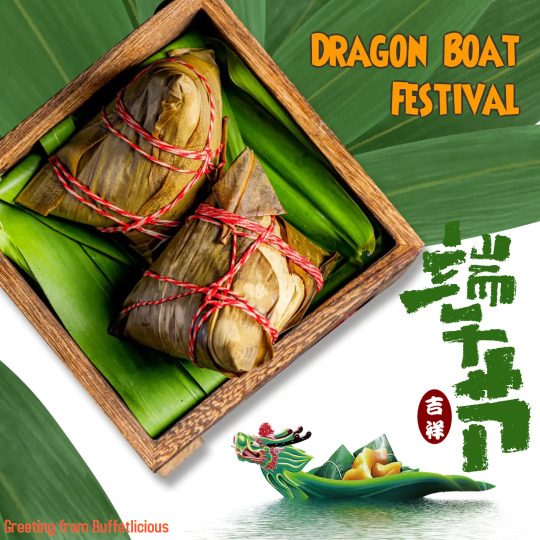
What is the legend behind the festival?
You may know that the Dragon Boat Festival (端午节/龙舟节) is meant to commemorate the death of the Chinese poet Qu Yuan, who died in the ancient state of Chu during the Warring States period (475–221BC), a bloody time when the different provinces of modern-day China fought endlessly against each other.
youtube
The patriotic poet Qu Yuan (屈原) was filled with despair about the state of his home and drowned himself in the Miluo River in Hunan province. According to legend, locals raced out in their boats to try and save him and threw balls of sticky rice into the river to protect his body from being eaten by fish.


However, it is also believed that the festival preceded before Qu’s tragic death, as a way to ward off bad luck. According to Chinese belief, the Fifth Lunar Month (农历五月) is “poisonous” because poisonous creatures, like snakes and scorpions, are active during the early days of summer. They also believed that people were more prone to illness during this time, so they held different celebrations to keep evil spirits, diseases, pests, and drought away.
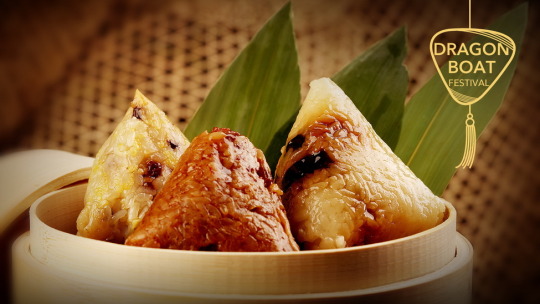
Selected images from here, here and here.
#Dragon Boat Festival#端午节#Qu Yuan#屈原#农历五月初五#Festival#Rice Dumpling#粽子#Glutinous Rice#Bamboo Leaf#Salted Egg Yolk#Chestnut#Mushroom#Chinese#Asian#Celebration#Video#Youtube#Food#Buffetlicious
18 notes
·
View notes
Text
The legend of Qu Yuan (c. 340 – 278 BCE), the poet of tristia and itinera, and how the custom of zongzi eating and dragon boat racing on Duanwu have come to be associated with his sad tale.
On the fifth day of the fifth lunar month—端午 Duanwu—we commemorate the death of the poet-minister Qu Yuan 屈原.
Exiled from the kingdom of Chu for his fierce opposition to Qin (which did indeed demolish all, in its imperial ambition), he drowned himself in the Miluo River.

Legend has it that fishing boats set out looking for the much-beloved Qu Yuan. When he could not be found, food was thrown into the river to prevent fish from consuming his corpse.
Hence Duanwu is also known as the Dragon Boat Festival & sticky rice packets (zongzi) are eaten.
'The Songs of Chu' 楚辭, attributed to Qu Yuan (but more likely by multiple authors) are densively allusive poetic laments dating from the 3rd c BCE collapse of the Chu kingdom.
To quote David Hawkes, Chuci 楚辭are the poetry of tristia and itineria —the laments of exile.
Qu Yuan's 'Songs of Chu' are the laments of one born to "an age foul and murky"
Sighs come from me often
the heart swells within
sad that I and these times
never will be matched.
As it is then, as it is now.

Another version:
Duanwu 端午 marks the beginning of summer heat and pestilence, and the in southern China and throughout southeast Asia it was an occasion to fumigate the household and eat restorative foods wrapped in naturally antiseptic leaves.
The legend of Qu Yuan - the loyal minister in exile, wandering the Southland - then, was a Han Confucian repackaging of local folk customs.
One stayed as low profile as possible to steer clear of all the miasmic, pestilential forces —hence the need for mugwort and spells...
「五月五日天中節一切惡事盡消滅 急急如律令」
FIFTH DAY OF FIFTH LUNAR MONTH: ALL THINGS WICKED AND PESTILENT TO BE VANQUISHED INSTANTLY WITH THIS SPELL
We could *really* do with such a 急急如律令 these days.
[Dunhuang fragment British library S.799]
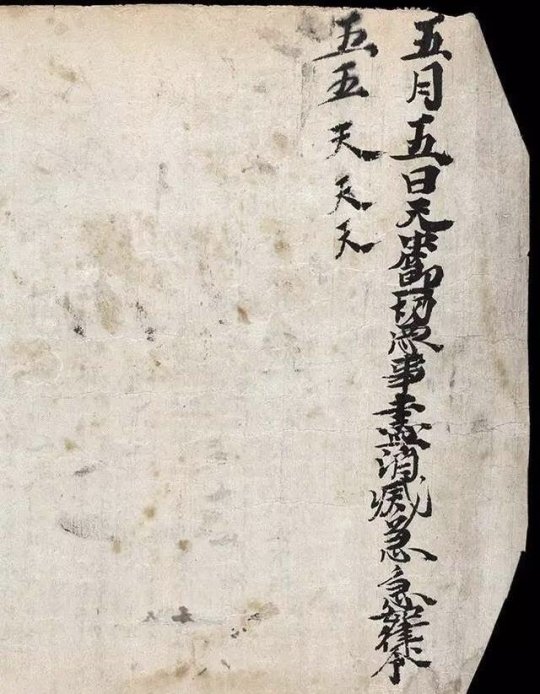
54 notes
·
View notes
Text
[Episode transcript can be found here.]
国殇 Our Martyrs
屈原 Qu Yuan
(from the Nine Songs, Songs of Chu)
操吴戈兮被犀甲,车错毂兮短兵接。
旌蔽日兮敌若云,矢交坠兮士争先。
凌余阵兮躐余行,左骖殪兮右刃伤。
霾两轮兮絷四马,援玉枹兮击鸣鼓。
天时怼兮威灵怒,严杀尽兮弃原野。
出不入兮往不反,平原忽兮路超远。
带长剑兮挟秦弓,首身离兮心不惩。
诚既勇兮又以武,终刚强兮不可凌。
身既死兮神以灵,子魂魄兮为鬼雄!
grasping Wu pikes—wearing rhinoceros armour,
chariot axles enmeshing—short-swords joining.
banners blotting the sun—foes like clouds,
raining arrows twofold—men eager to be first.
my formation scattered—my line trampled,
my left horses dead—my right sword-gashed.
a duststorm for two wheels—traces a team of four,
“reinforcements!” the jade drumsticks—“attack!” the drums call.
the heavenly hour resents us—the mighty spirit rages,
sternly slaying first to last—hometown fields abandoned.
going but not coming—departing but not returning,
the plains untended—the roads unending.
bearing long swords—clutching Qin bows,
heads and bodies parted—hearts still untried.
indeed both courageous—and accompanied by Wu,
staunch to the end—broken by none.
bodies stopped in death—both spark and spirit,
steadfast souls—heroes among ghosts.
Further reading:
G. Sukhu, The Songs of Chu (2017)
#classical chinese poetry#poetry reading#translation#qu yuan#chuci#episodes#SoundCloud#b:episodes#p:qu yuan
4 notes
·
View notes
Text
While the clouds gather beneath me. - Qu Yuan
'All gloomy and dark is the day;
The east wind drifts and god sends down rain.
Waiting for the divine one, I forget to go home.
The year is late. Who will now bedeck me?
'I pluck the larkspur on the mountain side,
The rocks are craggy; and the vines tangled.
Complaining of the young lord, sadly I forget to go home.
You, my lord, are thinking of me; but you have no time,'
The man in the mountain, fragrant with sweet herb,
Drinks from the rocky spring, shaded by pines and firs.
'You, my lord, are thinking of me, but then you hesitate.'
The thunder rumbles and the rain darkens;
The gibbons mourn, howling all the night;
The wind whistles and the trees are bare.
'I am thing of the young lord; I sorrow in vain.'
3 notes
·
View notes
Text
cleaned up my Qu Yuan "Guo shang" translation and put it on Cohost!
all my translations are in "perpetual first draft" tho, is how i think of them
5 notes
·
View notes
Text
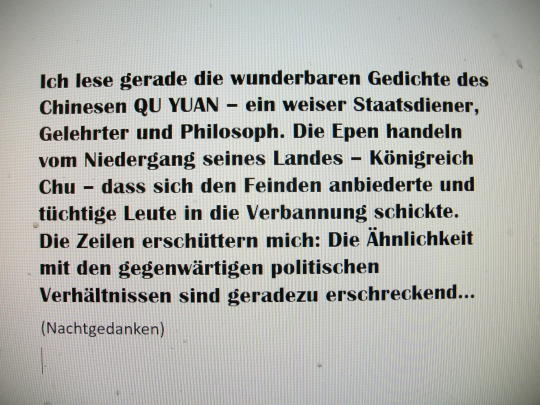
#meinungsfreiheit#diktatur#Qu Yuan#Gedichte#Lyrik#China#zeit der kämpfenden reiche#Kritiker#Suizid#verbannung#seelenverwandt
1 note
·
View note
Photo
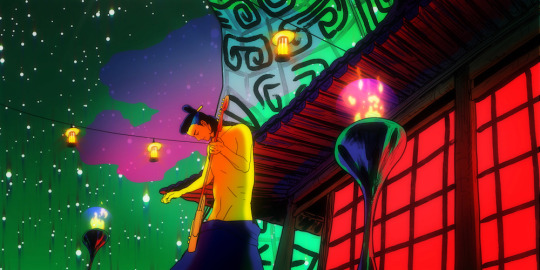
Kongkee: Warring States Cyberpunk
Kongkee, an award-winning animation director and visual artist, takes you back to the future in an odyssey more than 2,000 years in the making. Part comic book, part motion picture, part meditation on history repeating, the immersive experience of Kongkee: Warring States Cyberpunk traces the legendary Chinese poet Qu Yuan’s soul on a journey from the ancient Chu Kingdom to an imagined 21st century Asia of cyborgs, electric rock, and surprising romantic reunions.
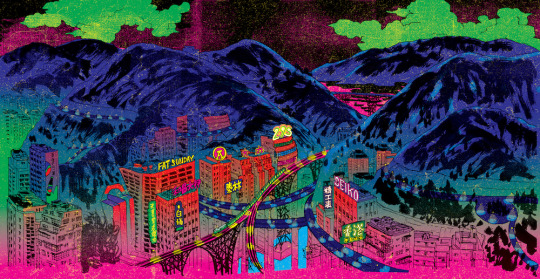

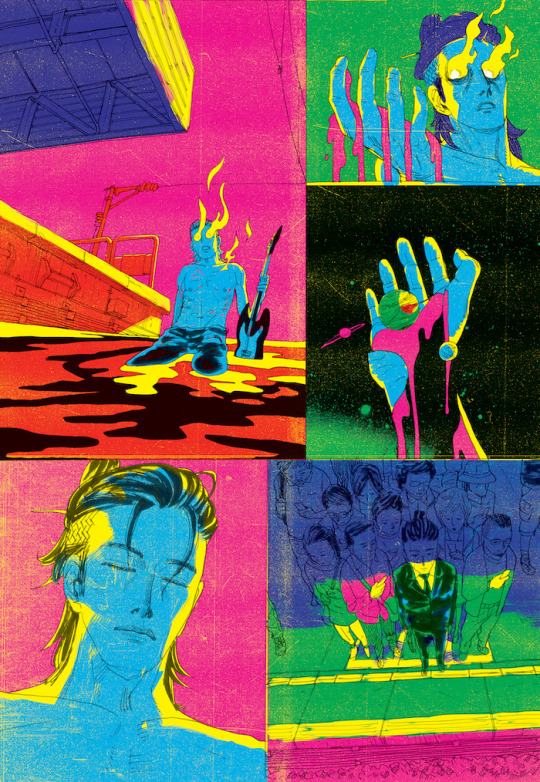

#kongkee#artist#art#cyberpunk#animation director#visual artist#comic book#motion picture#meditation#history#immersive experience#qu yuan#chinese poet#chu kingdom#asia
1 note
·
View note
Photo

https://www.thisiscolossal.com/2023/03/kongkee-warring-states-cyberpunk/
#Colossal#Cyberpunk#Illustration#Sci-Fi#Sci Fi#Science Fiction#Kongkee#Chinese#China#Warring States#Warring States Period#Warring States of Cyberpunk#Asian Futurism#Futurism#Qu Yuan
0 notes
Text
Saturday Surprise -- A Trip to Hong Kong!
Saturday Surprise — A Trip to Hong Kong!
I didn’t do a Saturday Surprise post last week, and while I had one started for this week, I simply deflated — lost my motivation. But, I have it started and you’ll see it sometime soon … I promise! Meanwhile, though … I dug back through my archives for one of my more popular Saturday Surprise posts and came up with this one that I think you’ll love! I first posted this in July 2018, so for…

View On WordPress
#blind competitors#Darkness Fighters#Dragon Boat Festival#Dragon Boat Races#drumbeat#Hong Kong#paddling boat#Qu Yuan#weekend!
0 notes
Text


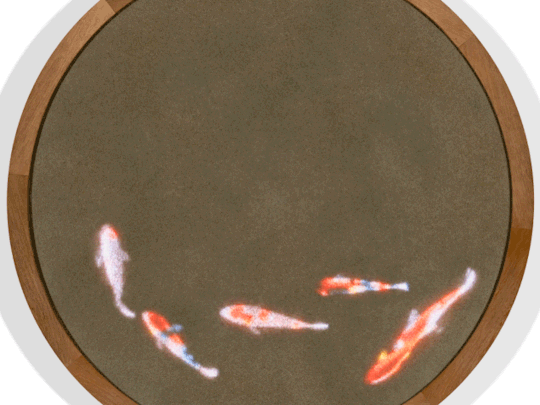
The Dragon Boat Festival originated from the totem sacrifice held by the tribes that worshiped the dragon totem in ancient times. It is a festival founded by Chinese ancestors to worship dragons and pray for blessings to drive off evil spirits. People also take the festival to honor and commemorate the famous patriotic poet Qu Yuan committed suicide by jumping into the Miluo River on the same day during the Warring States Period.
Dragon Boat Festival has many traditions, one of them is the dragon boat competition, its history dates back to the Warring States Period. People also wear sachets on the day of the festival to exorcise evil spirits and drive off plagues. The sachets contain cinnabar, xionghuang and Chinese fragrant medicines, which are covered with fragrant-smelling silk cloth then buckled with colorful silk strings to form various shapes and sizes, how exquisite and lovely! Some restaurants hand out their own self-made sachets to their customers sometimes on the Dragon Boat Festival, did you get any so far?
You can’t miss out the one food on the Dragon Boat Festival must-have menu, Zongzi (粽子zòngzi). As for flavors, here we go - pork, bean paste, egg yolk, red dates, chestnut, lotus seed, purple potato, sweet-scented osmanthus, beef tenderloin in abalone sauce, dry scallop with pork etc, you name it. For classic-flavor lovers out there, you’ll never go wrong with pork.
island6 team wish you a happy Dragon Boat Festival! We are open during the festival from 10am to 6pm. Drop by!
Art inquiries : [email protected]
Follow us on IG : island6_gallery
#shanghai#m50#dragonboatfestival#shanghaiholiday#digitalmarketing#newmediaart#contemporaryart#liudao#island6#artgallery#chinesetradition#dragons#porcelain#koi#qu yuan
0 notes
Text
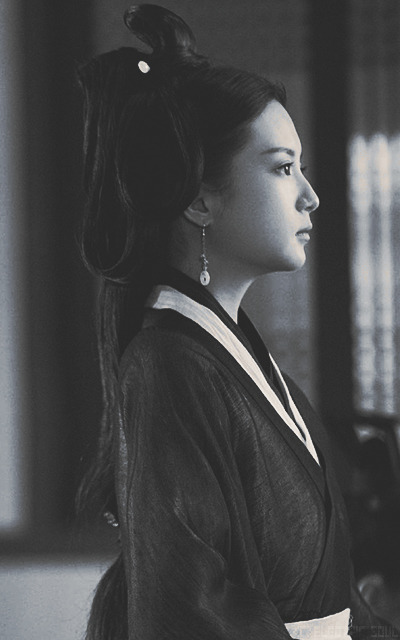
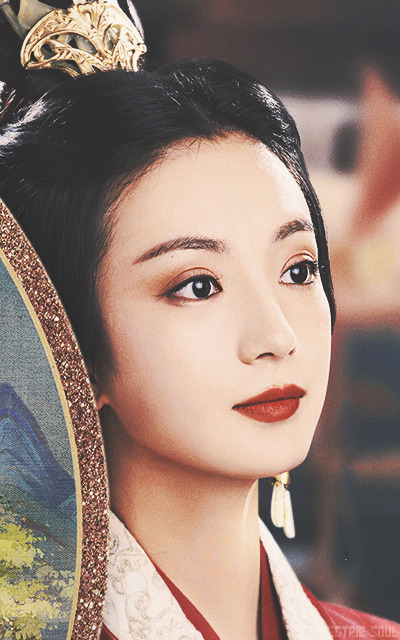
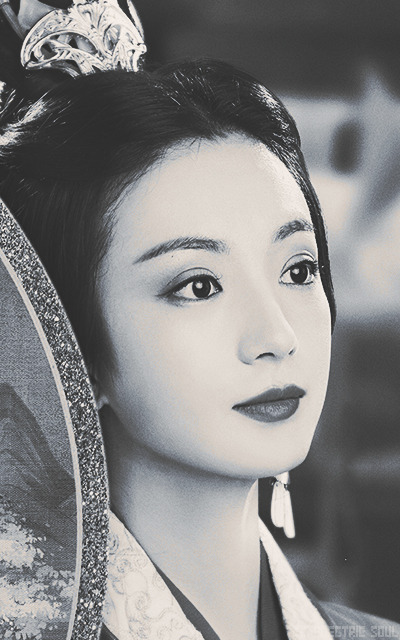
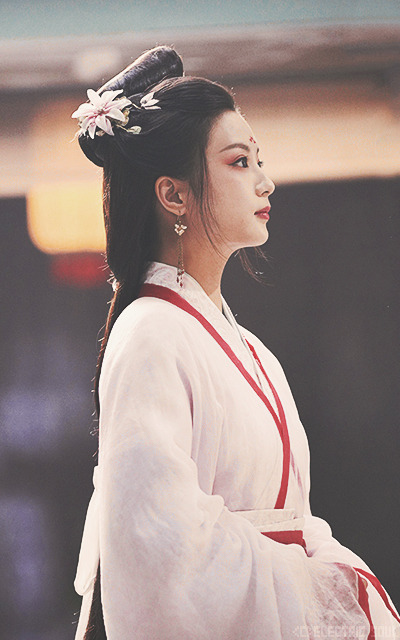
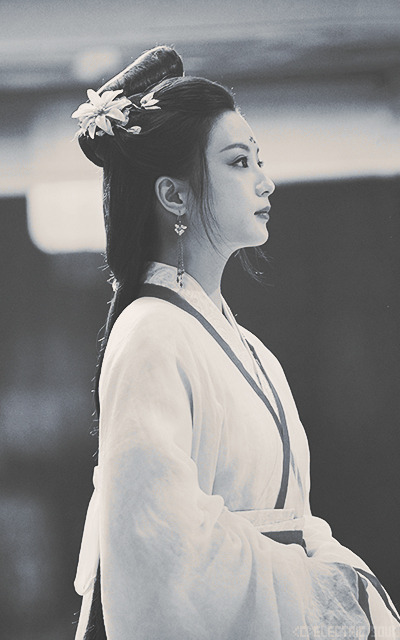
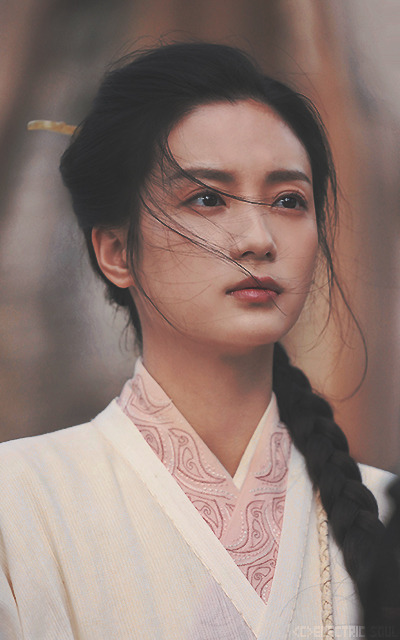
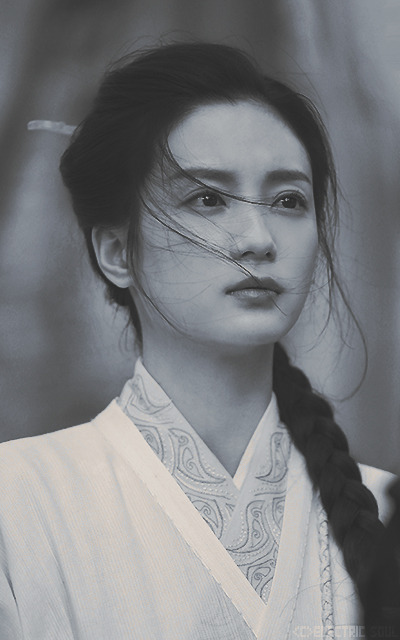

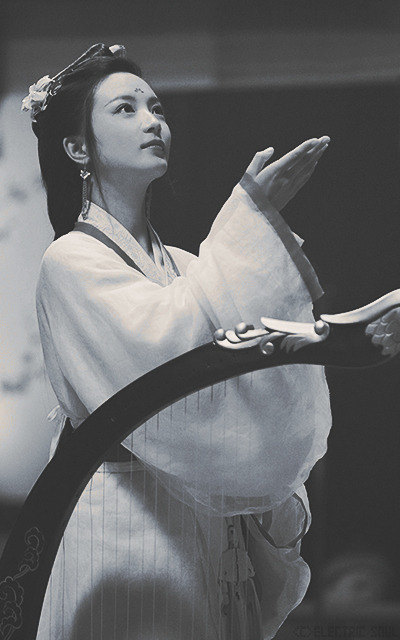
fc: Zhang Yaqin (张雅钦)
ethnicity: Han Chinese
#zhang yaqin#zhang yaqin avatars#cdrama#an ancient love song#lu yuan#gu xiang si qu#chinese fc#period fc#张雅钦#古相思曲
34 notes
·
View notes
Text

Mr. Bad. 9
Story: 10
Acting: 10
Chemistry: 10 🔥
Comparable to: Lost Romance (Taiwanese) Goblin (kdrama); Romance of Tiger and Rose (kdrama); Extraordinary You (kdrama)
Really really really far fetched far out there fantasy drama, but sooooooooo good, especially if you love cheesy fluffy fairytale ones. The chemistry between the main leads were oozing with smexy goodness. It has bucket loads of hilarity and some heartwarming moments too. My only complaint is that sometimes it got a bit annoying when they focus on the secondary couple too much. Other then that this has to be one of my top favorite cdramas.
#mr. bad#cdrama#viki#iqiyi#chen zheyuan#chen zhe yuan#shen yue#luo ming jie#guo xiao tian#dong xuan#qu jing jing#shao feng#fantasy#romantic comedy#love/hate#multiple couples#fav#rec#❤️
18 notes
·
View notes
Photo
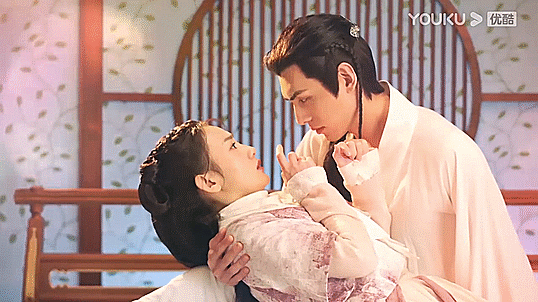
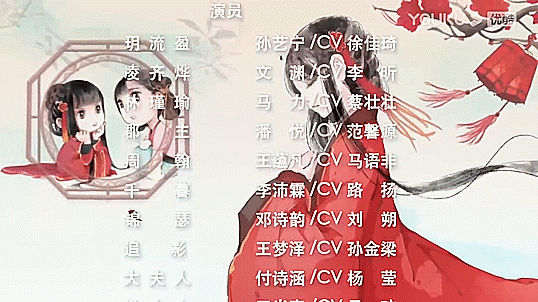
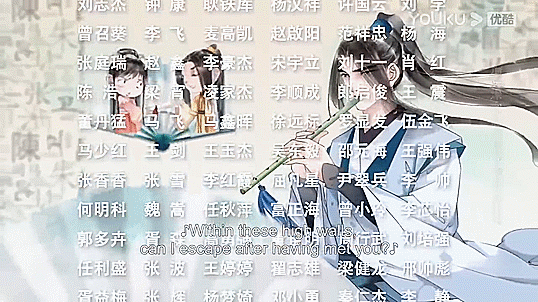
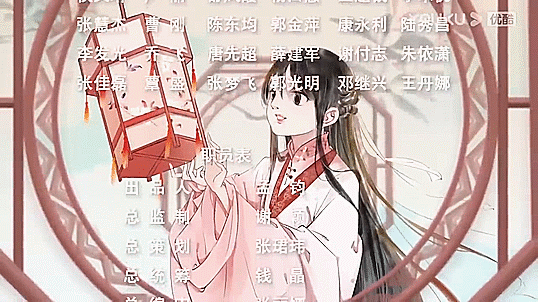
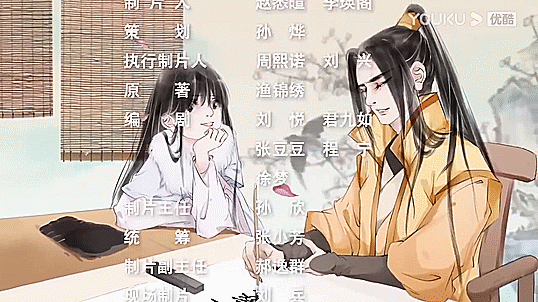
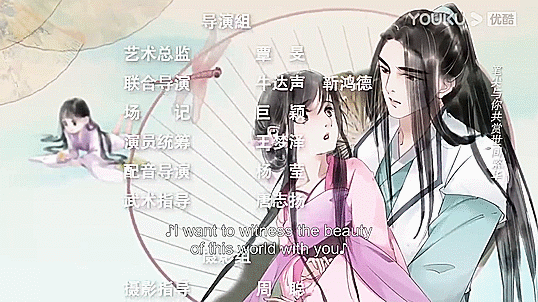


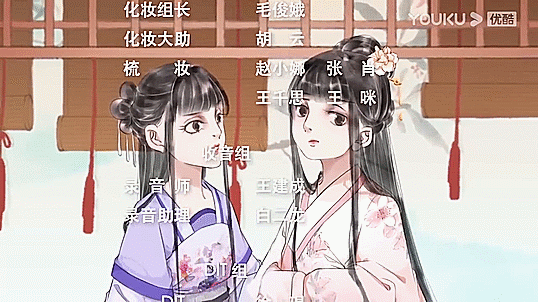

Cdrama: The Blessed Bride (2022)
Gifs of Ending of cdrama “The Blessed Bride”
ENGSUB 【FULL】 府上娶了个锦鲤新娘 The Blessed Bride EP01 腹黑庄主追爱逃婚少女💞 孙艺宁_文渊_潘悦 古装爱情 优酷宠爱频道 YOUKU ROMANCE
Watch this video on Youtube: https://www.youtube.com/watch?v=j7KYnSIckAI
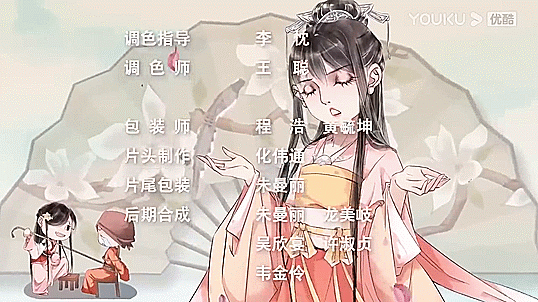

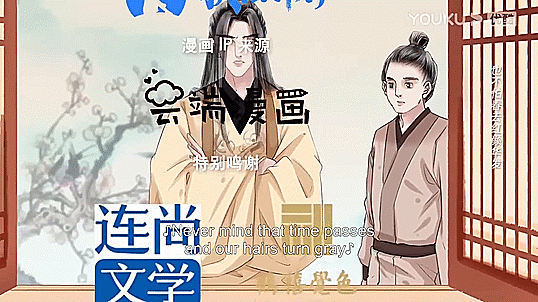
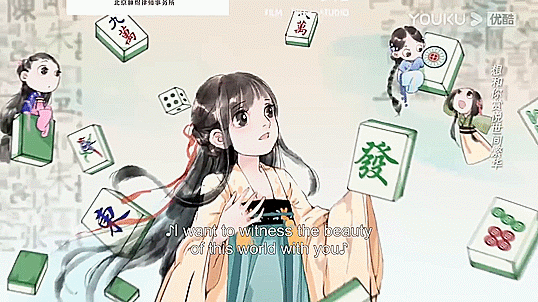
#The Blessed Bride#府上娶了个锦鲤新娘#The man married a koi bride#府上娶了個錦鯉新娘#Fu Shang Qu Le Ge Jin Li Xin Niang#2022#Youku#minidrama#Short Length Series#Cavan Wen#Wen Yuan#Amy Sun#Sun Yi Ning#Ma Li#Pan Yue#Ivan Wang#Wang Yun Fan#Deng Shi Yun#cdrama#chinese drama#1st episode#episode 1#youtube
25 notes
·
View notes
Text
Transcript: 屈原 Qu Yuan - 国殇 Our Martyrs
[Listen to the episode here.]
This is 国殇 Our Martyrs, by Qu Yuan.
grasping Wu pikes—wearing rhinoceros armour,
chariot axles enmeshing—short-swords joining.
banners blotting the sun—foes like clouds,
raining arrows twofold—men eager to be first.
my formation scattered—my line trampled,
my left horses dead—my right sword-gashed.
a duststorm for two wheels—traces a team of four,
“reinforcements!” the jade drumsticks—“attack!” the drums call.
the heavenly hour resents us—the mighty spirit rages,
sternly slaying first to last—hometown fields abandoned.
going but not coming—departing but not returning,
the plains untended—the roads unending.
bearing long swords—clutching Qin bows,
heads and bodies parted—hearts still untried.
indeed both courageous—and accompanied by Wu,
staunch to the end—broken by none.
bodies stopped in death—both spark and spirit,
steadfast souls—heroes among ghosts.
---
I haven't done a bilingual reading this time, you'll notice, for a couple different reasons.
First, it's long compared to the average length of the types of poem I focus on translation. And every time I've sat down to record this it's been brutally hot in my non-air-conditioned building (makes doing anything other than sleeping very hard).
Second, much of the vocabulary is deeply archaic even by the standards of classical Chinese poetry. Um, let's see, I've done readings of work by Li Qingzhao, that's Song dynasty or 1084-1155 CE. By Du Mu and Du Fu, that's slightly different parts of the Tang dynasty (803-852 and 712-770 CE respectively). Whereas the collection that this poem comes from, the highly foundational Chuci or Songs of Chu, dates from the third century BCE. And while Tang and Song poetry would've been performed in Middle Chinese, the Chuci would've been in a southern Chu version of Old Chinese. That is more than 2200 years of linguistic change, and as an amateur that is way above my paygrade. I don't know, I'm going a tangent -- modern Mandarin does not really resemble either Middle Chinese or Old Chinese, very much. Again, two millennia of linguistic change.
I mean, that said, this comes from such a well-known classic I'm sure there's no problem finding videos of other people doing readings of this poem.
2 notes
·
View notes